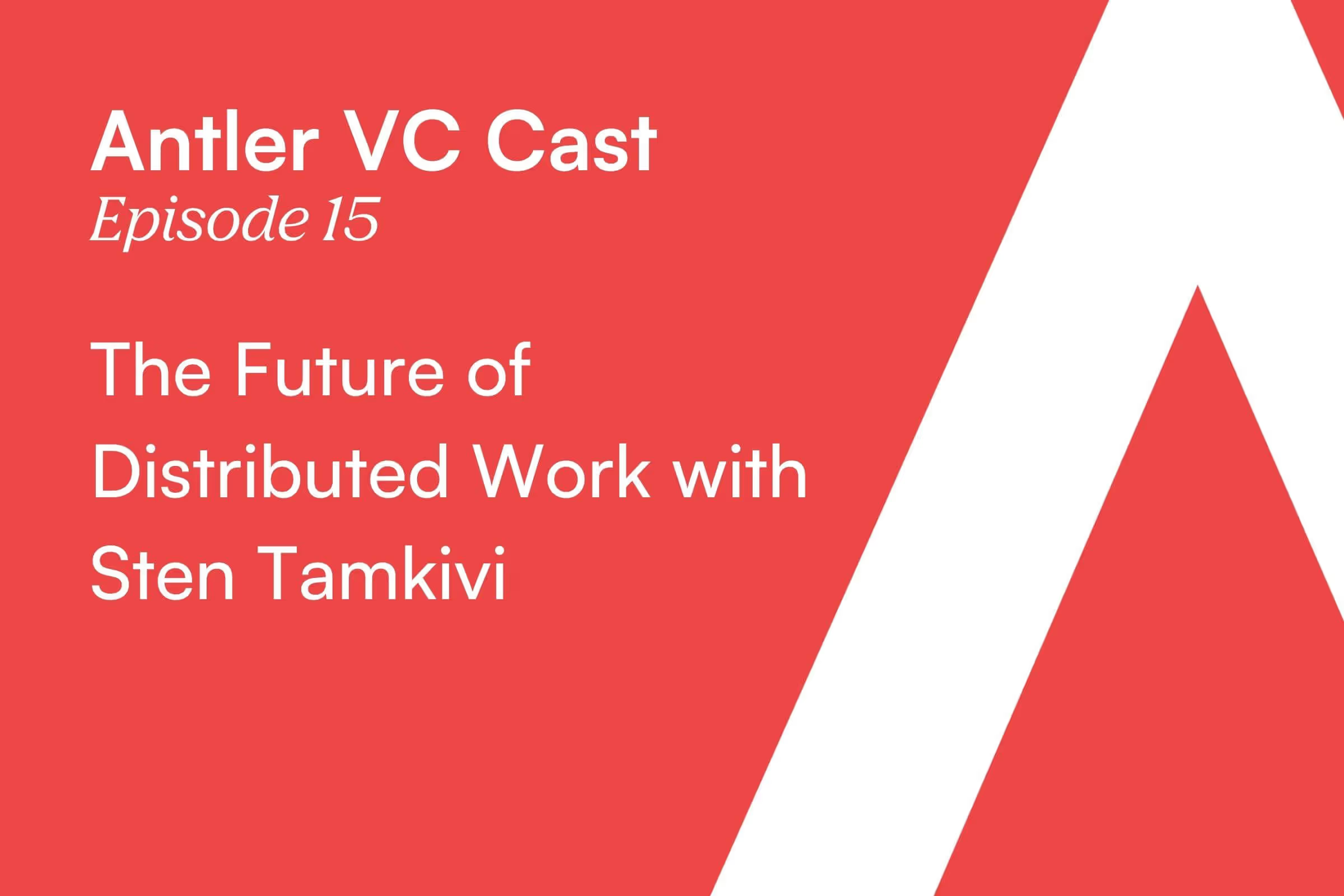Key Highlights From Transcript
[18:56] Sten discusses the role of a physical office in an increasingly hybrid work environment
[20:31] Sten highlights the principles you need to build a successful distributed working team
[39:33] Sten shares his decision-making process when it comes to investing in early-stage companies
On how the whole concept of Topia came about
Sten Tamkivi: If you were to take a list of the "Western democratic values" or think of what kind of society that we all would want to be born in, you would have equal rights, lack of military conflict, religious freedom, women's freedom to decide over their bodies. But if you run the calculations and add all of those values together, the probability of a baby being born today in a society where all these things are true, is about 3%. That's a 97% probability that there is something in the environment that you were born in that doesn't match your needs and interests on a very basic human level. And if you start adding things like your special talents or your professional desires or whatever, the probability that you're in the perfect place for yourself, just through the cosmic lottery of where you were born, is very, very low.
So we started thinking, "How do you increase the chance that a human gets the most out of their potential during their lifetime?"
If somebody is born in the middle of Sub-Saharan Africa and happens to be great at math, how do you get that person to Oxford or Cambridge? Or if somebody is a really strong bio researcher who has this entrepreneurial knack, how do you help that person find that San Diego is the startup hub for them?
On how people can advance their economic status and lives through this platform
Sten Tamkivi: If you look at the total amount of money you spend in your lifetime, about 60% to 70% of that goes into two things -your residence and taxes. The fastest way to change your quality of life or economic status is either by doubling your income or moving to a place where you will reduce your cost. And that -people flocking to places where they can make more money on their skills, knowledge and talents -is one trend. People flocking to optimized locations where they have better access to healthcare and schools and all these other things for a fair cost, is another.
In this day and age, people can move around and figure out what the pluses and minuses are of different environments in the world. And all governments are in competition for talent. The only difference is if they realize that or not. Now, in the past 12 months, we've been living with a very active set of constraints on movement, and the more restrictions you have, the more help you need. The industry around helping people figure out remote and distributed work is just booming, because we're helping people in a more complex environment.
On working in complex remote and hybrid working environments
Puja Bharwani: One of the big questions that people are asking as the economy and world is reopening is what is the place of the office? The relationships you make through work, for cultural solidarity and building a strong corporate culture, how do you see the place of the office fitting in this new world?
Sten Tamkivi: I don't think you'd need an office, I think you need to break that down to smaller components. What you definitely need is facetime and congregation but there are different ways in which you can achieve that. In some cases the answer might be an office, especially if you're offering something like, I don't know, massage services, there's a high chance that you need a physical location. For a lot of these distributed work mechanisms, I think people should look at open-source movements more because many of those things were invented over the years by hundreds of people who have never met each other, right?
On the principles you need to build a successful distributed working team
Sten Tamkivi: You need three things when building a distributed team. You need to hire people that can firstly write well or write liberally; secondly, meet frequently and thirdly, congregate occasionally. Writing matters because we do so much more work in asynchronous ways, especially across time zones. If you write concise and funny and clear, you are a better team member and people find it easier to interact with you. Meeting frequently is something we've now been able to change with technology, going from physical meetings to video calls. But it's not perfect... VAR (Virtual Augmented Reality) is not there yet, the level of where you would hang out in the Metaverse just for eight hours a day.
I believe that it's possible to build human relationships face-to-face and maintain them via video calls, but the opposite is really hard, and it will take us a few more technological cycles to get there.
On the unique setting and opportunities in Estonia -the country with the highest unicorn per capita ratio in the world
Puja Bharwani: What do you think is unique about Estonia, that enables such a small population to be able to innovate?
Sten Tamkivi: It's pretty exciting and it's as one of my American friends says, that when anything is per capita, Estonia always wins. We just produced our unicorn number five and for a country of 1.2 million people. I actually think the small size is a benefit. It's a little bit counter-intuitive for people coming from larger countries but if you come from a country of a million people, anything you do, you have to worry about, "Okay, how do we get this huge thing done with three people? How can I start this business with no resources or no capital?" So the scarcity and the ratio of "man/woman hours put into the value created for the world" has been extremely high here all the time. That's a very startup mindset -how do you do more with less?
For 50 years, we were occupied by the Soviet Union and that was the era where it was very popular and sensible to focus on things like real sciences, math and physics and whatnot. I think if you look at the rankings, Singapore, Estonia and Finland are consistently on top of the world when you talk about kids learning math. But once we became re-independent in the early '90s, the proximity to the Nordics and access to what the Western world looks like, rapidly helped.
On success breeding success
Jussi Salovaara: Skype was truly phenomenal. What was it? Two years in to a $2.6 billion USD acquisition? Would you agree that it has had a big hand in building the ecosystem to where it is?
Sten Tamkivi: Absolutely. It's like this wheel, spinning from one project to another and success breeding success. It's exactly what Silicon Valley has been built on, over the last 40 years. This is what Erickson and post-Erickson, so the Spotifys and later unicorns in Sweden have created, and Estonia definitely has been following in the footsteps of Skype.
A year after the Skype acquisition, the total amount of capital invested in Estonian startups in 2006 was $6 million. And now we are raking in consistent $350, $400 million a year going into tech. The last 14 to 15 years really has created a consistent industry after these first few examples.
On his key product-building model
Puja Bharwani: What is Sten's product building model? How should product builders think about building from the early stages?
Sten Tamkivi: I'm a huge fan of small, self-contained product teams. Basically a startup is one and at Skype, at its peak by the time I left, we probably had 25, 27 of them. The model is that you standardize the roles that you need, at minimum, to maintain something as a product. And there's a massive difference between the project and the product, which people very often get confused about. Project is something that takes you from A to B with a limited number of resources and then ships and it's done. Product is something that you iterate on over the years, capture user feedback and live data, and keep improving incrementally.
And so in my typical model, you have a product manager or a tech or an engineering lead, a few engineers but not too many, maybe three or five. And then a few domain-specific roles, maybe a designer, if it's a very user interface-heavy product. If you're building a tax engine, you might want to have a tax analyst on the team and so forth. Then scaling a product organization becomes a decision, not, "Do I hire two engineers?" But, "Do I put up a new product team?" because you recognize that all those roles are necessary and you can't just write code, or you can't just design UIs, you need to put them somehow together. The product manager is somebody who needs to shepherd the hard task of prioritization.
On maintaining your values as your company scales
Sten Tamkivi: Many companies try to capture their values and in the beginning when you have founders and three other people then it's pretty easy to be on the same page. If you're a hundred people, then it probably makes sense to write them down in some form.
I think the most common mistake is that you write your values down and leave them at it, there's a poster on the wall now, it's done. I think the real trick is how do you embed the same things that you've written down in the everyday operations of the business?
That includes hiring. We have five values that we've written down at Topia. If there's a value called, "Be a Global citizen," then on the Greenhouse form, where every person after an interview needs to take notes, there are explicitly five values written down and you need to check off like, "Do you think that person followed or not?" And bring an example and write a comment about it.
On his early and late-stage investment thesis
Sten Tamkivi: Very early-stage investment is all about the team and the founders, as you have really no numbers to look at yet. I think over the last five or six years, I found it extremely liberating to narrow down my investment thesis to what I'm actually working on -this entire open-world and future work theme. You can simplify your decisions by thinking, "Okay, would we want to build that? Do I want to have this thing exist in the world? Yes or no?" Secondly, "Would I want to build that in Topia or should it exist next to it?" And then you, "Okay, this thing actually fits my thesis," and you make a decision: "Do I want to put time or money in it?"
It's becoming increasingly rare that I invest in people I don't know, outside of my thesis, and that has been extremely simplifying.
Later-stage investments are super different by assessment. When you go into a unicorn when they're already at the $500 million valuation, then you have a lot more material to dig through. And then there are some super nation technological fields that just get me excited. Like over this last year I've been reinvigorated by what's happening in crypto and decentralized finance, for example.









%2520(1).avif)
%2520(1).avif)
.avif)
